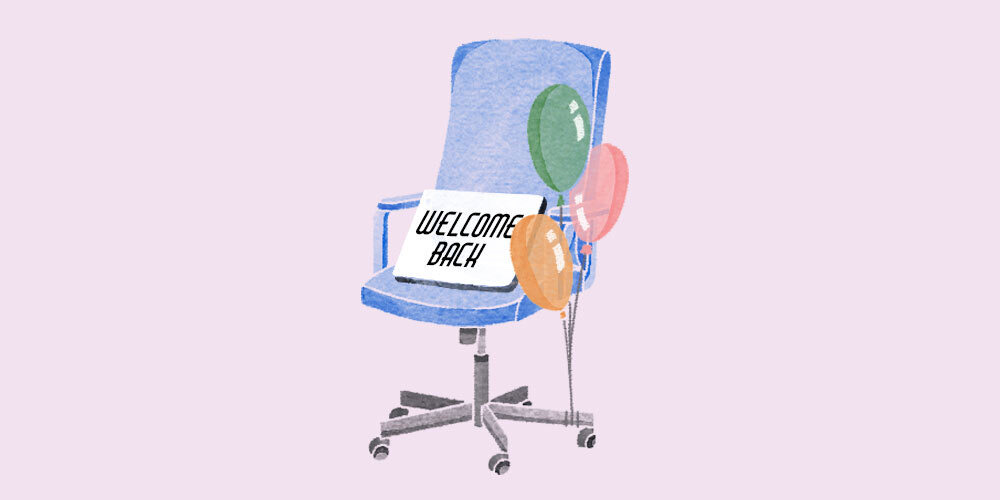Is neurodivergence a reason to grant RTO exceptions?

This article is part of a series that will spotlight the biggest challenges and opportunities for desk-based professionals who are neurodiverse. More from the series →
Workers returning to offices have given up some of the conveniences afforded to them working from home. But for some workers, those luxuries are actually necessary to do their best work. For those with certain disabilities, health conditions, and for those who are neurodiverse, working in the office every day may simply not be feasible.
But getting those accommodations can be tricky: it requires disclosing your condition to your employer and risking that your request won’t be granted.
Most employers are still giving exceptions on a case-by-case basis, or through “shadow management policies,” a recent report from Owl Labs found. RTO policies aren’t being equally applied to everyone, but rather managers have been granting more flexibility to their direct reports regardless of company-wide mandates, that survey, which included responses from 500 full-time workers in the U.S. found.
That survey also found that about one in three employees reported having neurodivergent differences, disabilities or health conditions, and about one in five of them said those conditions make it difficult for them to work in person.
Georgia O’Brien-Perry, a digital PR manager at Bulldog agency, said her employer has been more than accommodating of her ADHD, which she was diagnosed with about three years ago. She struggles with inattentiveness and getting easily distracted, but addressed that with her employer during her interview process to ensure they’d be supportive. She’s now on a hybrid schedule, and often on days in-office she’ll retreat to a private room or phone booth to really focus on a task. Her coworkers are aware and know to not bother her.
“Trying to understand my brain and get accommodations for that has done so much for me,” O’Brien-Perry said.
With that support from her colleagues, she doesn’t mind going to the office some days. In her previous role as a teaching assistant she hated going in every day. “It was too much, it was too overwhelming, too overstimulating,” she said.
For many neurodivergent workers, “working from your home is kind of your safe space, you know, if you feel overwhelmed and overstimulated, you know that you can just kind of walk away a lot more than you can in the office,” she said.
An ongoing issue for organizations is simply around neurodiversity awareness and acceptance, which is a more recent movement thanks in part to TikTok and other social platforms spurring wider recognition.
Organization-wide policies around granting neurodiverse staff accommodations are scarce though, in part because it’s a spectrum, with certain conditions impacting certain people in different ways, said Kyle Samuels, CEO of Creative Talent Endeavors, a search and advisory firm focused on increasing diversity in the workplace. With discretion left largely up to managers, it’s important for them to understand the point of requests being made, and how that could impact the team. For some it might simply mean wearing noise-canceling headphones most of the day, but for others it may mean needing to work from home more days than others.
“You can’t stop your business for one person, one person’s needs, but if you’re not willing to make reasonable accommodations for these people. you’re losing out,” Samuels said. “You’ve got to be able to be willing to understand the value of what you’re giving up,” he said.
The messiness in making expectations is an ongoing challenge employers will have to solve as they risk losing good staff, but also risk harming their productivity. When workers aren’t able to work in their most comfortable arrangements, “They risk not getting maximum productivity, with employees not performing at their best,” Owl Labs’ Frank Weishaupt said.
They could also be at legal risk if they fail to grant reasonable expectations for staff with covered disabilities. Neurodivergence is a spectrum and some of those employees may meet the Americans with Disabilities Act definition of a disability, but others may not, according to the Job Accommodation Network.
Last year an employee at an electric boat company sued his employer for failing to provide reasonable accommodations, as the employee had multiple health issues, including a heart defect and severe anxiety. He worked from home during the pandemic but struggled to return to the office. The company granted him the ability to work from home partially, but he deemed that insufficient, and he didn’t return to work under those conditions, which his employer took as his resignation. That case is still ongoing.


